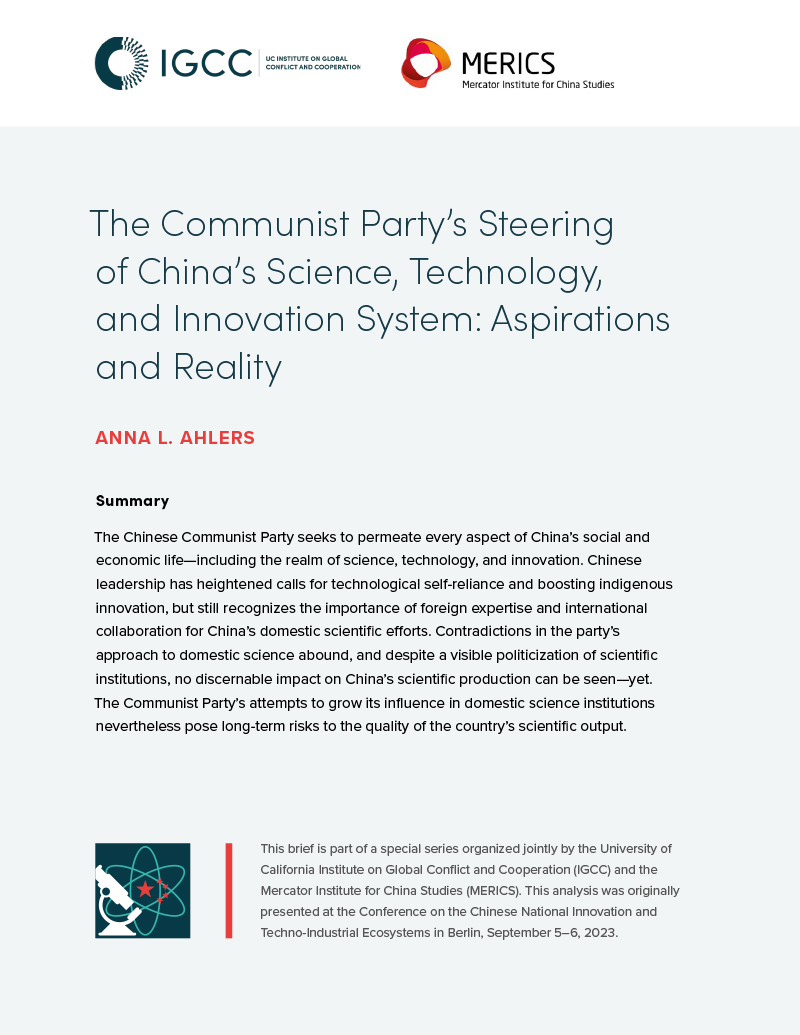The Communist Party’s Steering of China’s Science, Technology, and Innovation System: Aspirations and Reality

In this policy brief, Anna L. Ahlers discusses the Chinese Communist Party’s attempts to grow its influence in domestic science institutions, and the long-term risks to the quality of the country’s scientific output these efforts may pose.
DownloadIn this policy brief, Anna L. Ahlers, founder and head of the Lise Meitner Research Group at the Max Planck Institute for the History of Science (MPIWG), analyzes the Chinese Communist Party, which seeks to permeate every aspect of China’s social and economic life—including the realm of science, technology, and innovation. Chinese leadership has heightened calls for technological self-reliance and boosting indigenous innovation, but still recognizes the importance of foreign expertise and international collaboration for China’s domestic scientific efforts. Contradictions in the party’s approach to domestic science abound, and despite a visible politicization of scientific institutions, no discernable impact on China’s scientific production can be seen—yet. The Communist Party’s attempts to grow its influence in domestic science institutions nevertheless pose long-term risks to the quality of the country’s scientific output.
This brief is part of a special series organized jointly by the University of California Institute on Global Conflict and Cooperation (IGCC) and the Mercator Institute for China Studies (MERICS). This analysis was originally presented at the Conference on the Chinese National Innovation and Techno-Industrial Ecosystems in Berlin, September 5–6, 2023.
Thumbnail credit: Get Archive